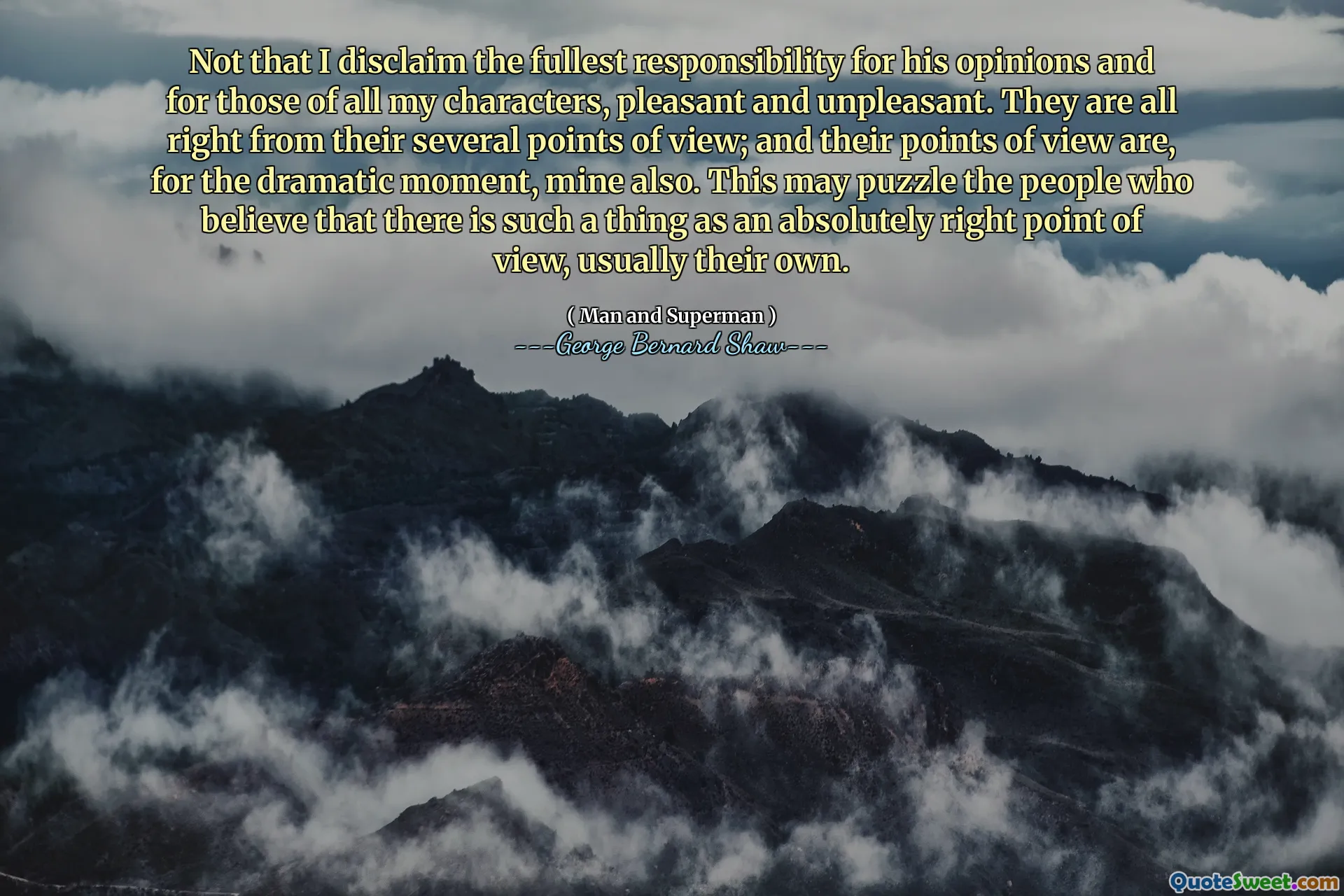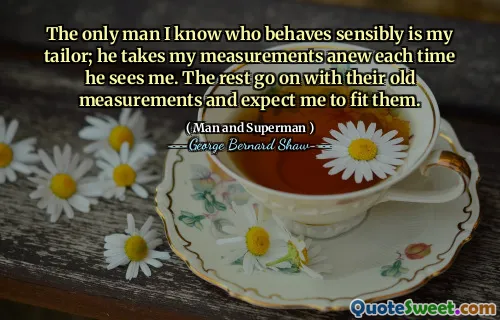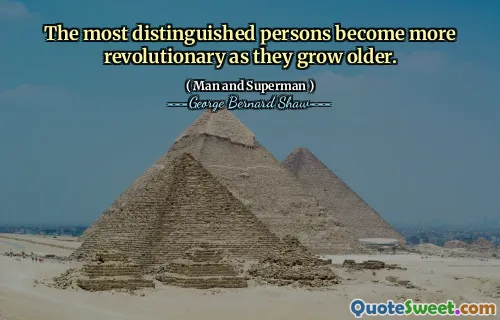
Not that I disclaim the fullest responsibility for his opinions and for those of all my characters, pleasant and unpleasant. They are all right from their several points of view; and their points of view are, for the dramatic moment, mine also. This may puzzle the people who believe that there is such a thing as an absolutely right point of view, usually their own.
In "Man and Superman," George Bernard Shaw expresses the idea that he holds himself accountable for the viewpoints of all his characters, regardless of whether they are agreeable or disagreeable. He acknowledges that each character's perspective is valid within the context of the narrative and that they reflect different segments of his own understanding and experience. Shaw suggests that understanding these varied viewpoints is essential to grasping the complexity of human thought.
Shaw also critiques the notion that there is a singular, absolute truth, often held by individuals who view their perspective as the only correct one. He indicates that such rigid beliefs can be misleading, as they fail to recognize the multiplicity of truths that exist. By embracing diverse perspectives, the reader is encouraged to appreciate the richness of human experience and the drama it entails.











